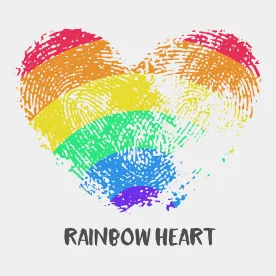According to a 2019 GLSEN national survey of LGBTQ+ students, nearly 60% of surveyed students reported they felt unsafe at school because of their sexual orientation and 43% because of their gender expression. Within the same survey, nearly all (98.8%) LGBTQ+ students reported hearing “gay” used in a negative way at school, 95% heard other homophobic remarks, and 87% heard transphobic remarks.
When I was an educator, it was essential to my practice that all my students felt safe. If I were to hear any negative remarks about a student or become aware one of my students felt unsafe due to their identity, it would be my ethical, and moral, obligation to do something to create a safer and more inclusive learning environment; a core part of my role as an educator was to teach empathy and compassion in my students. This could be as simple as having a classroom discussion about the choices of language and how using words such as “gay” with a negative connotation can be hurtful to their classmates. This could also mean sharing my own identity as a queer man so my LGBTQ+ students knew they had someone they could turn to for support, and to normalize queer identities for all my students and their families. Either of these actions would require I discuss the importance of accepting all sexual orientations and gender identities.
In other words, I would have to say “gay.” But in six states — as of now — I would not have been able to do this.
The state of Florida attracted national attention earlier this year with the adoption of H.B. 1557, the “Parental Rights in Education” bill, more commonly known as the “Don’t Say Gay” bill. The bill, which has since been signed into law, dictates classroom instruction by “school staff” on “sexual orientation or gender identity may not occur in kindergarten through grade 3 or in a manner that is not age-appropriate or developmentally appropriate for students.” Five other states, according to the Movement Advancement Project, have similar laws enacted and several more have bills pending in their state legislatures. Some proponents of these bills argue the legislation is necessary to ensure parents have greater say when, if, and how LGBTQ+ issues are discussed with their children.
Yet these laws are designed to ensure only some parents have greater say, as the parents of LGBTQ+ children are certainly not reflected in these efforts.
At a time when youth mental health is reaching a crisis, state legislatures are advancing bills that would perpetuate, and arguably exacerbate, harmful school-based experiences for LGBTQ+ youth and worsen their well-being. A 2022 survey by the Trevor Project found 45% of LGBTQ+ youth seriously considered attempting suicide in the past year, and over half of transgender and nonbinary youth considered suicide. The 2019 GLSEN survey also found LGBTQ+ students who experienced forms of victimization based on their sexual orientation or gender identity (e.g., being bullied, hearing homophobic or transphobic remarks, etc.) had lower levels of self-esteem, higher levels of depression, and were less likely to say they belonged in school.
Some may argue “Don’t Say Gay” bills would not preclude educators from addressing instances of homophobia or transphobia in their classrooms and try to suggest that prohibitions on such actions are not the intent of the bills. However, regardless of intent, these bills often have the insidious impact to “chill” educators’ actions out of fear they may run afoul of the law and open themselves to reprimands, including being terminated.
All students deserve to have a safe, supportive, and affirming learning environment. All educators should be empowered to protect their students, and not feel afraid to step in when they notice a student being bullied because of their identity. And every parent should have the resources to be a partner in their child’s education. Unfortunately, state laws such as the “Don’t Say Gay” bills will only stand in way of these notions from becoming realities.
It is impossible to support all students when LGBTQ+ children continue to be targeted merely because of their identities.




 />i
/>i

